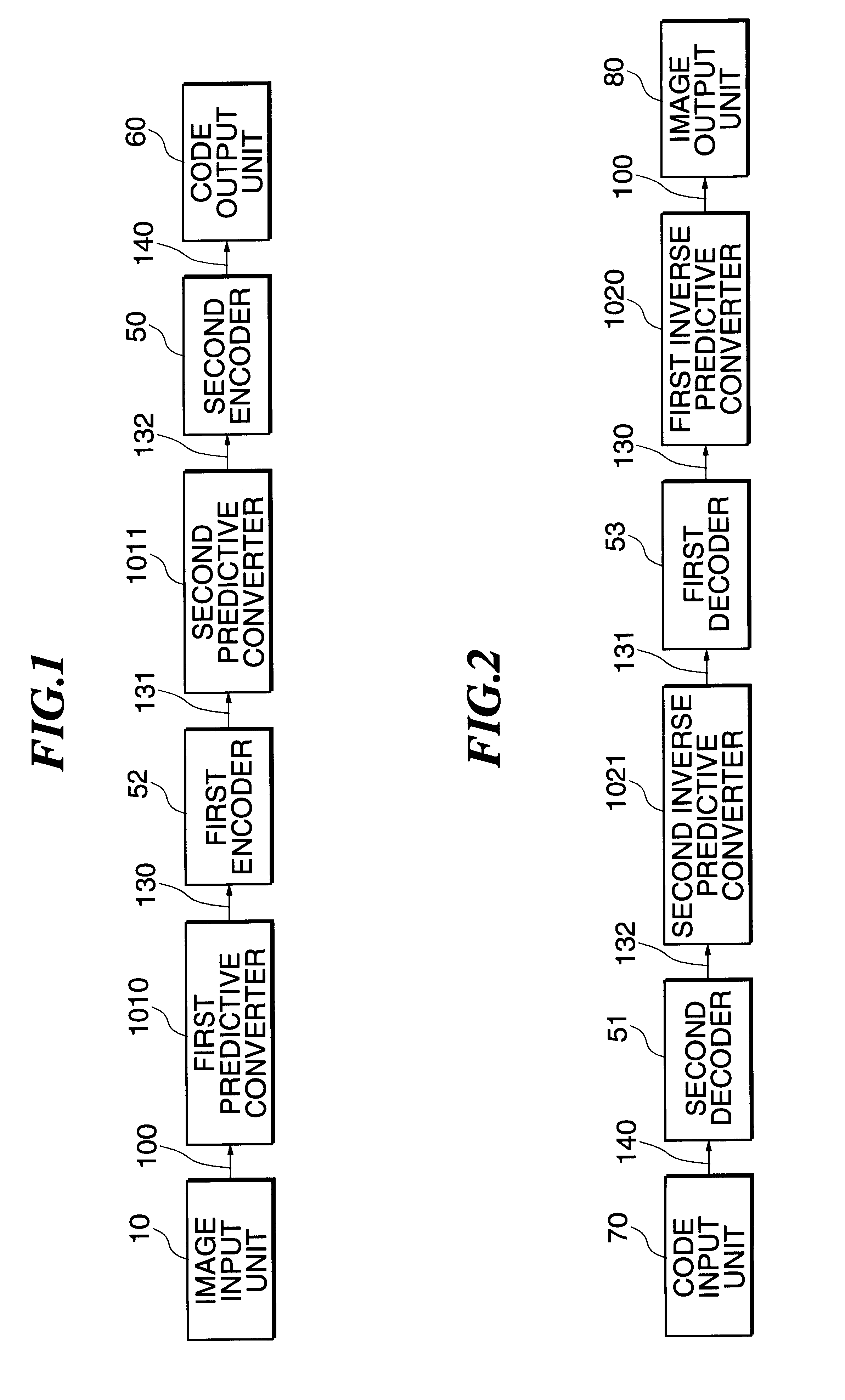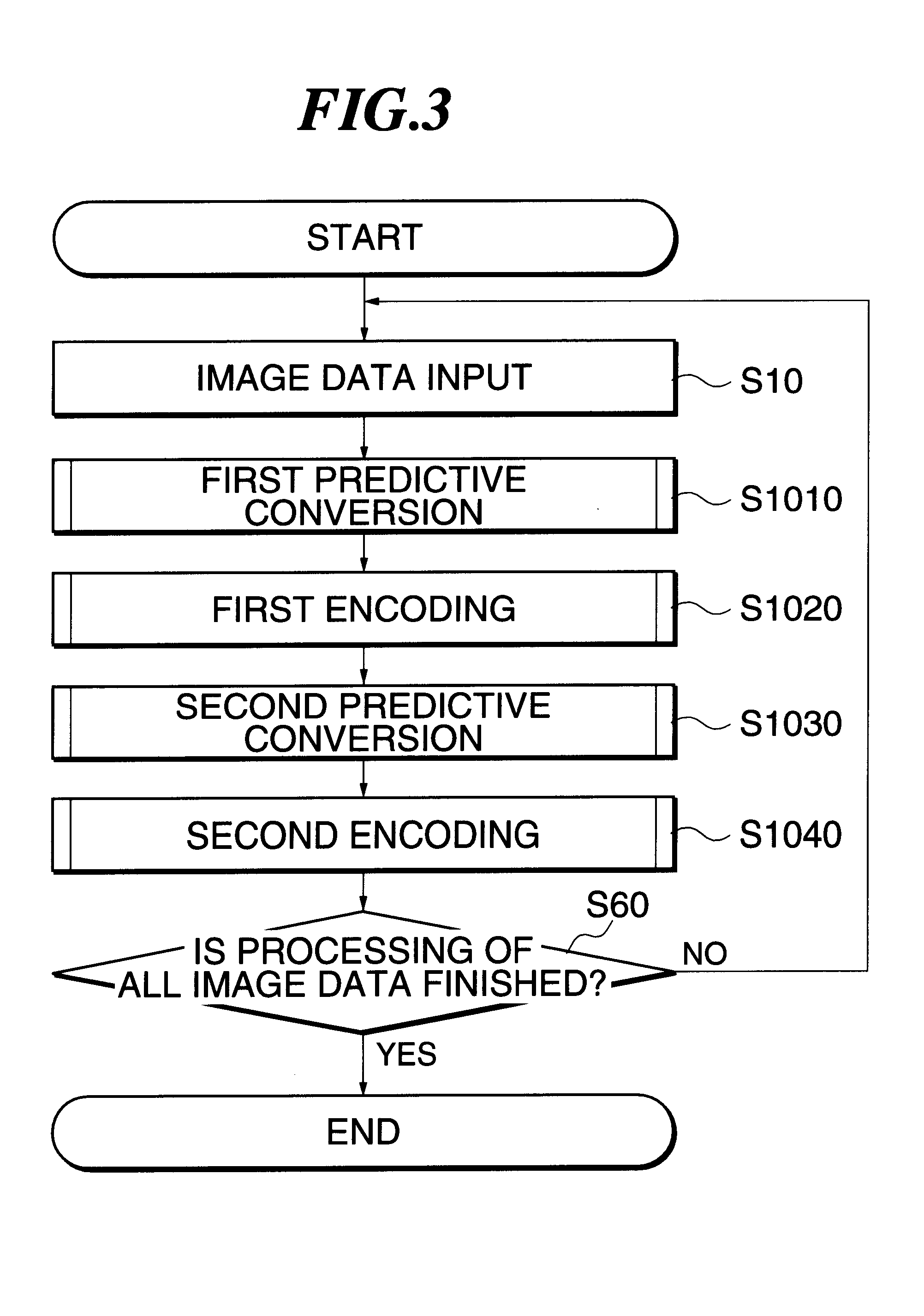Image encoding system, image decoding system and methods therefor
a technology of image data and decoding system, applied in the field of image data compression, can solve the problems of image data volume so large, deterioration of visual quality of decoded images, and volume of communication or storag
- Summary
- Abstract
- Description
- Claims
- Application Information
AI Technical Summary
Benefits of technology
Problems solved by technology
Method used
Image
Examples
first embodiment
the present invention is explained next. FIGS. 1 and 2 are block diagrams representing an image encoding system and an image decoding system in the first embodiment, respectively. In these figures, the same reference numerals as used in FIGS. 14 and 15 designate the same elements, so only elements other than those elements are described here. 52 denotes a first encoder, 53 a first decoder, 131 prediction symbol data, 132 higher-level symbol data, 1011 a second predictive converter and 1021 a second inverse predictive converter.
As shown in FIG. 1, the first predictive converter 1010 receives image data 100 from the image input unit 10 to convert it in a given manner for prediction and sends the resulting data as prediction condition data (first prediction value) 130 to the first encoder 52.
The first encoder 52 encodes the prediction condition data 130 using a prescribed encoding technique and sends the encoded data as prediction symbol data (intermediate data) 131 to the second predi...
second embodiment
Described next is the present invention. FIGS. 7 and 8 show an image encoding system block diagram and an image decoding system block diagram, respectively. In these figures, the same elements as used in FIGS. 1, 2, 14 and 15 are marked with the same reference numerals and their descriptions are omitted here. 22 represents a third predictor, 23 a fourth predictor, 42 and 43 second selectors, 112 prediction data, and 113 control data.
The elements shown in FIG. 7 are described next. The third predictor 22 and the fourth predictor 23 each make a prediction for the prediction target symbol according to prediction symbol data 131 in a given manner and send the resulting data as prediction data 112 to the second selector 42. The second selector 42 detects whether the prediction for the prediction target symbol is right or wrong, according to the prediction symbol data 131 and the prediction data 112. As a result, if the prediction made by either predictor is right, the predictor's ID numb...
PUM
 Login to View More
Login to View More Abstract
Description
Claims
Application Information
 Login to View More
Login to View More - R&D
- Intellectual Property
- Life Sciences
- Materials
- Tech Scout
- Unparalleled Data Quality
- Higher Quality Content
- 60% Fewer Hallucinations
Browse by: Latest US Patents, China's latest patents, Technical Efficacy Thesaurus, Application Domain, Technology Topic, Popular Technical Reports.
© 2025 PatSnap. All rights reserved.Legal|Privacy policy|Modern Slavery Act Transparency Statement|Sitemap|About US| Contact US: help@patsnap.com



